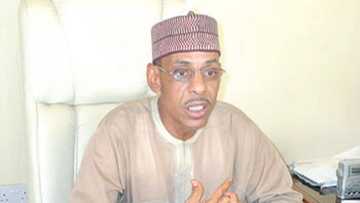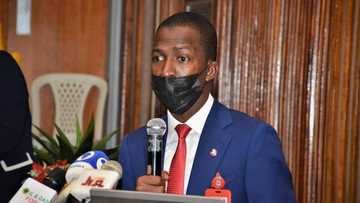5 Factors That Will Determine 2023 Presidential Election
As the 2023 general election gradually emerges, experts have highlighted factors that will influence the coming elections.
PAY ATTENTION: Click “See First” under the “Following” tab to see Legit.ng News on your Facebook News Feed!
According to Chidi Anselm Odinkalu in an opinion published by Punch Newspaper, these factors will be pivotal for the coming election.
These are the factors as highlighted Odinkalu
1. Independence of INEC
The independence of INEC itself. The year 2023 will put to test whether INEC has improved from its default for abracadabra. Electoral systems at the end of the day are run by human beings. When they are crooked or lacking in independence and integrity, the elections are compromised. Already there are reports of “serious concerns in INEC that preparation for the 2023 general elections may not command public confidence.”
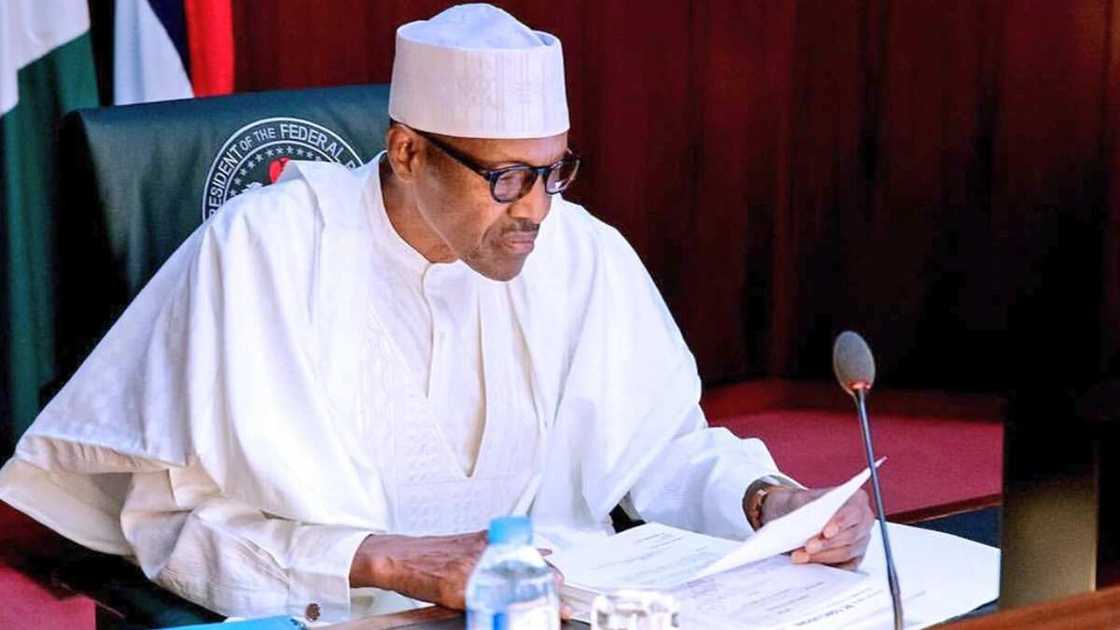
Source: Facebook
PAY ATTENTION: Install our latest app for Android, read best news on Nigeria’s #1 news app
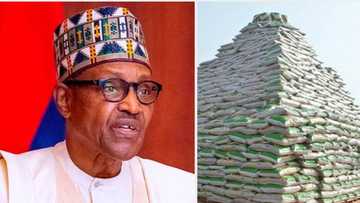
Read also
President Buhari to unveil CBN, RIFAN one million bags of rice pyramid in Abuja, the biggest in Africa
2. Technology
Second, technology. INEC has been quite voluble about the Bi-Modal Voter Accreditation System as its answer to Nigeria’s chronic problems of voter accreditation and ballot collation. This system had its first major outing in the Anambra governorship election last November. BVAS is geospatially dependent. It is also broadband dependent and needs 4G to guarantee functionality. Anambra is Nigeria’s second smallest state at 4,844 km², with a dense population, in which communities live cheek-by-jowl with one another. The next two states in which INEC will audition BVAS before the 2023 presidential election, Ekiti (6,353 km²) and Osun (9,251 km²), combine for only 15,604 km² of landmass or nearly the size of Lagos State smaller than the smallest state in northern Nigeria, Gombe State (18,768 km²).
3. Violence
Third, violence. 2021 recorded the worst toll in deadly violence in the country since 2015. The United States Holocaust Memorial Museum’s Early Warning Projections for 2021-22 ranks Nigeria 8th in the global list of countries at risk of mass killings. Access to illegal firearms has been democratised. At the beginning of 2022, the Auditor-General of the Federation reported “the total number of lost firearms (from the Nigeria Police Force) as reported as of December 2018 stood at 178,459 pieces. Out of this number, 88,078 were AK-47 rifles.” The numbers are likely to have grown vastly since 2018. To police the Anambra election last November, the country deployed nearly 14% of active-duty police assets, supplemented by other security agencies. There will not be this proportion of assets available in a general election. In the absence of any credible ideas for diminishing the current trajectory of violence in Nigeria, INEC will struggle to find election administrators and numbers will be manufactured from places where no voting can take place.
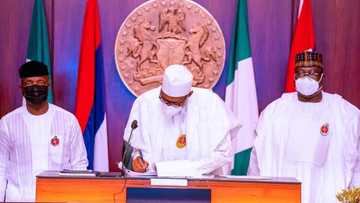
Read also
Nigeria's 2022 budget is riddled with corruption as BudgIT discovers over N378bn hidden duplicated projects
4. Judiciary
Fourth, judicial capture. Every election cycle in Nigeria has three seasons. The campaign season belongs to the parties, the politicians and their godfathers. This is followed by the voting season, during which the security agencies and the Independent National Electoral Commission hold sway. Thereafter, matters shift to the courts for the dispute resolution season, which belongs to the lawyers (mostly Senior Advocates of Nigeria, and judges. Invariably, the judges will cast the final votes in the 2023 elections. The politicians know this and they have been busy getting their judicial inoculations and boosters in a competitive game of judicial capture at different levels of the judicial hierarchy. As Supreme Court Justice, Centus Nweze, pointed out in March 2020, Judges can do a lot of damage by arrogating to themselves decisions that only the collective of voters in any constituency are allowed by the constitution to make. Imo State under Hope Uzodinma provides a tragic proof. The judges who have accused INEC of procuring electoral abracadabra are themselves avid exponents of the dark art of judicial abracadabra. In 2023, this jurisprudence of abracadabra could cost us the country.
5. Electoral acts
The final factor could be the Electoral Act. Nigeria’s current Electoral Act is in arrears. In six years in power, Buhari has never seen an Electoral Act that he could assent to. As Owei Lakemfa has pointed out, on four occasions in that period, Buhari has, under different artifices, declined assent to the Electoral Bill passed by the National Assembly. The design seems clear: by enabling a tyranny of artisanal manipulation, he configures an electoral landscape favourable to the party that controls the official mechanisms of coercion and the state violence. That is his party. If he continues on this path, Nigeria’s 2023 elections could be a tragic farce with deadly consequences for the country and beyond.
Deji Adeyanju rejects Tinubu's presidential ambition
Meanwhile, Legit.ng had earlier reported that Deji Adeyanju, an activist and convener of Concerned Nigerians, has rejected the presidential bid of Tinubu.
Reacting to Tinubu's interest to lead Nigeria, Kogi-born Adeyanju warned Nigerians to be wary of the former Lagos state governor, accusing him of corruption.
He said Tinubu will mortgage Nigeria's future as he allegedly did to Lagos state.
Field northern candidates in 2023 elections and lose, Buhari's minister tells parties
In other news, Chris Ngige, the minister of labour and employment, had lent his support for the presidency to be zone to the south.
Ngige, in an interview, stated that although most political parties like the All Progressives Congress (APC) and the Peoples Democratic Party (PDP) do not have the principle of rotation in their rules, it is an unwritten agreement enshrined in the Nigerian constitution.
The minister said this ideology runs through all the arms and levels of government in Nigeria to reflect the federal character.
Source: Legit.ng

